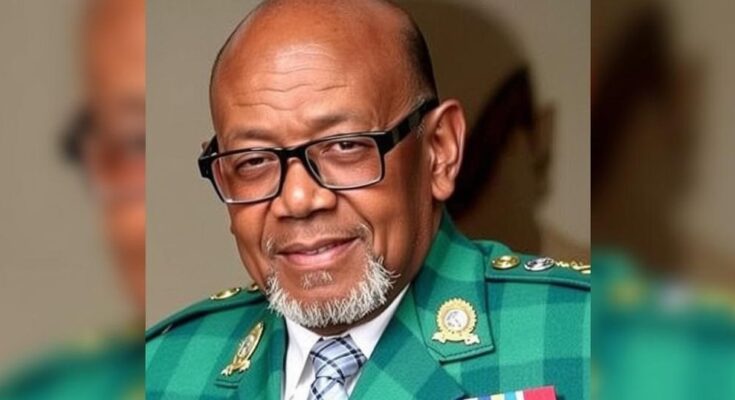Desi Bouterse, former Suriname dictator and president, has died at 79, following a brief illness. Known for his military coup in 1980 and subsequent leadership, he lived in hiding subject to numerous criminal convictions and charges of political violence. Despite a controversial legacy, he maintained support from various factions for his social reforms. His death has prompted reflections on his complex role in Suriname’s history.
Desi Bouterse, the former dictator and subsequently elected president of Suriname, passed away at the age of 79, according to government sources. Bouterse, who died on Tuesday after a brief illness at his hideout, had been a prominent figure in Surinamese politics since seizing power in a military coup in 1980. Although he stepped down due to international pressure in 1987 and faced numerous charges related to political violence, including the execution of 15 opponents, he was highly regarded by lower-income populations for his social policies. Current President Chan Santokhi expressed condolences, while Bouterse’s supporters honored his legacy at his Paramaribo residence.
Bouterse’s political career began following a coup five years after Suriname obtained independence from Dutch colonial rule. He initially expressed ambitions as a military leader, promoting himself to commander-in-chief. Born in 1945 and trained in the Netherlands, he became embroiled in various controversies, including a 1999 drug trafficking conviction in the Netherlands, which resulted in an Interpol arrest warrant. Despite his conviction in absentia for multiple murders and drug-related offenses, he maintained a substantial following due to his policies on universal education and healthcare, before ultimately living as a fugitive.
Desi Bouterse remains a contentious figure in Suriname’s history. His enduring support among certain demographics is juxtaposed with his brutal governance and myriad legal troubles. His military background and subsequent political maneuvering highlight the complexities of leadership in a nation grappling with its identity post-colonization. Over his tumultuous career, Bouterse faced accusations ranging from orchestrating massacres to drug trafficking, yet he also implemented social reforms that won him admiration among supporters.
“It took 41 years, but the long arm of the law caught up to Bouterse before he died,” stated Reed Brody, a noted international human rights lawyer. This underscores the complex legacy he leaves behind, as many applaud his contributions to social programs while condemning the violence and corruption that marred his rule.
The details surrounding Bouterse’s death and subsequent ceremonies will likely provoke discussions about his controversial legacy, highlighting the duality of his role in Suriname’s history as both a revered leader to some and a fugitive responsible for egregious crimes.
In summary, Desi Bouterse’s passing marks the end of an era for Suriname, characterized by a complicated legacy of military dictatorship, legal disputes, and social reform. His life reflects the broader struggles of Suriname as it seeks to reconcile its past with its future. The reactions to his death will undoubtedly ignite debates concerning his impact on the country, both as a dictator and as a democratically elected leader.
Title: Desi Bouterse, Suriname’s Controversial Ex-Dictator, Dies at 79
Desi Bouterse’s life encapsulates the tumultuous political landscape of Suriname from its post-colonial era onward. Having led a coup in 1980, he dominated the country for decades, exhibiting a blend of authoritarian rule and populist policies. His convictions and subsequent fugitive status stem from accusations related to violent suppression of dissent and drug trafficking. Despite this, Bouterse remained a polarizing figure, with many viewing his social policies favorably. The dichotomy of his legacy as a leader responsible for both reform and repression complicates the narrative of Suriname’s political history.
Desi Bouterse’s death represents a significant moment in Suriname’s political history, concluding the life of a figure synonymous with both dictatorship and social reform. While his policies on health and education won him a dedicated following, his legacy is marred by his engagement in violence and crime. The reactions to his passing will likely lead to ongoing discussions about the impact he had on Suriname and the lessons to be learned from his controversial tenure.
Original Source: www.insidenova.com




